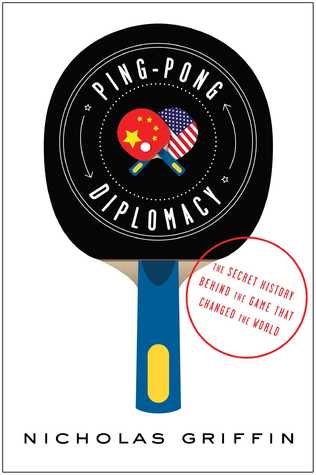Governments have long used sport for political purposes. Famously, the Berlin Olympics attempted to whitewash the emerging Nazi regime and the Argentinean ’78 World Cup was presented as proof of the virtues of military dictatorship. Even now, Qatar and others see football as a way to “sportswash” their own troubling reputations. But, surprisingly, no sport was arguably ever as pivotal to global politics as table tennis – or Ping Pong as many know it.
Ping-Pong Diplomacy is structured in three parts – firstly it tells the life story of Ivor Montagu and his development of Ping Pong as a global game. Montagu was a British aristocrat and an active Soviet spy who grew table tennis internationally while also grasping its potential as a tool of spreading Communism globally. A fascinating man that seems like a character from an old adventure novel, Montagu was remarkably successful in spreading table tennis to the East.
Secondly, it tells the story of just how quickly the game spread and established in both post War Japan and newly Communist China. Within China, Communist leaders quickly adopted the game and when they came to power it became the national sport. For the Chinese, Ping-Pong ultimately became a political tool to be used as part of Mao Zedong’s foreign policy.
Finally, the book details the use of table tennis by the Chinese regime to open up relations with the USA. It details how, in 1971, a US table tennis team was invited behind the Bamboo Curtain and surreal nature of the experience for both sets of players. This invitation played a significant role in the eventual opening up of China to the West and the establishment of bilateral relations with the US.
At its best, the book provides a fascinating look at Mao’s long reign through the prism of a special class of Chinese citizens – Ping Pong players. They were the most famous sportspeople in China at the time and were treated exceptionally well. Mao used international tournaments to distract from the mass famine associated with the Great Leap Forward. However, even famous players found they easily fell foul of the cultural revolution and the ping pong team was attacked as a symbol of the Communist Party old guard and the players suffered greatly.
The book is exceptionally readable and Griffin’s skills as a writer shine through. Key characters are vividly painted, none more so than Montagu himself. Thoroughly researched, at times funny, at times deeply sad, Ping Pong Diplomacy is a great read. It shines a fascinating light on a time when sport truly helped change the world.
